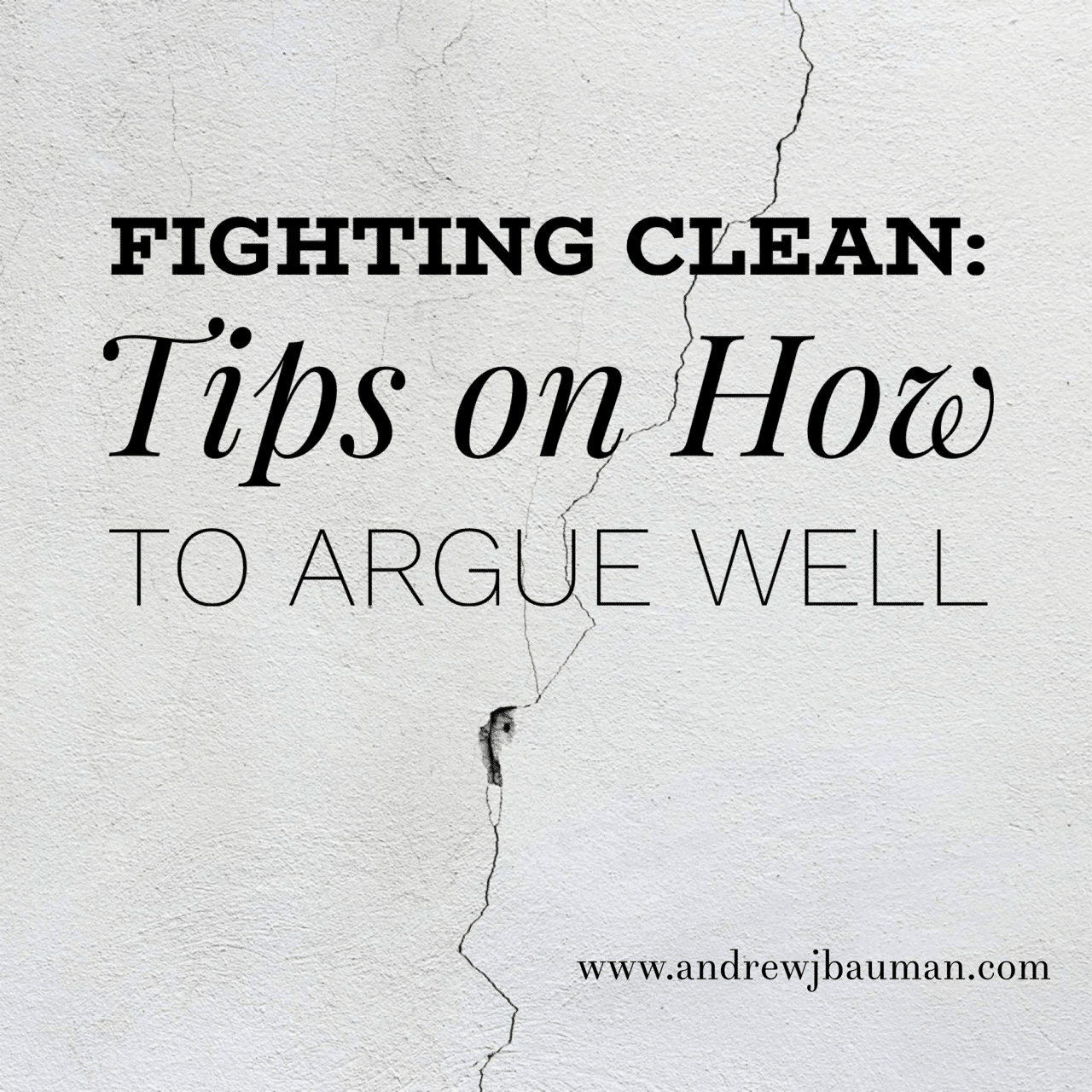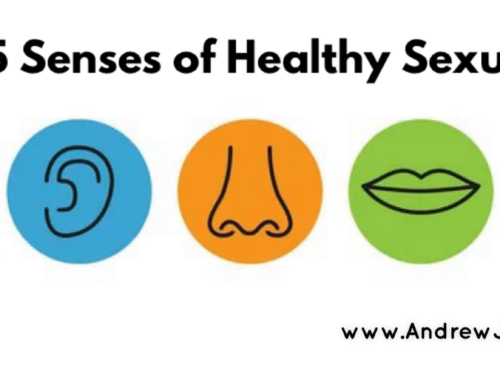One thing I have always struggled with is learning how to fight clean. In my family of origin, we won arguments by any means necessary: belittling, demeaning, and making the other person feel as small and as insignificant as possible in order to gain the upper hand. If that sounds sadistic and maniacal, it was. We had no regard for each other, no love or curiosity for the other’s pain. It was about surviving the threat that was in front of you. This family narrative made me a good orator, but a terrible person to argue with.
How do people you love and who love you become a threat? Typically, this dynamic springs from years of unaddressed hurts and pain. Although all of those wounds may never be fully addressed (at least, not without help from a skilled therapist), there is a good chance that we can improve our relationships by learning how to fight clean. We all encounter conflict; we all argue, and this can actually be a sign of relational health. It’s not a question of if you will have an argument, it’s a question of how we can fight better to cultivate intimacy rather than create further distance within our relationships.
Here are a few tips on how to argue well:
1.) Try a Soft Start-Up
Dr. John Gottman and Dr. Sybil Carrère did a 6-year study on the hypothesis of “how a discussion of a marital conflict begins–in its first few minutes–is a predictor of divorce.” Their research concluded that “discussions will end on the same note they begin”. Their findings confirmed the idea of the “soft start-up”. To help lower defensiveness in your partner or loved one, a soft start-up is a vital tool to help the conflict go smoothly. For example, “Hi honey, I have a complaint. Let me know when you are in a good place to hear it.” This allows your partner prepare emotionally and let you know when he or she is in a good place to respond appropriately. If you are the one bringing the complaint, it is your responsibility to not become critical or accusatory when expressing your complaint.
2.) Stay Connected to Your Body
One of the most effective ways to fight clean is to remain connected with your body. When we enter into a conflict, we quickly lose touch with what is really going on in our bodies. A good practice is to use “I feel…” statements instead of accusatory statements such as “You are”. “You are” can quickly feel like an attack, while “I feel” statements more accurately name your own personal experience in a situation.
Feelings are normally summed up in one word; e.g. I feel angry, I feel sad, I feel betrayed, I feel scared, I feel ashamed. If you remain connected to your body, you can remain connected to your feelings. These feelings are yours; no one else’s, and your feelings can be a helpful guide in navigating an argument. This is especially true if you have done a lot of emotional work and are honest with yourself; it is crucial to this process that you know your true self well.
On the other hand, the use of “I feel” to justify name-calling while hiding behind the language of so-called “feelings” is inappropriate and wildly counterproductive. For example, “I feel like you are being a huge jerk”, or, “I feel like you are acting like a child”. “Jerk” is not a feeling, and passively telling someone they are acting like a child is merely a form of degrading aggression. That is not fighting clean.
3.) Avoid Extreme Language
Always, Never, Everyone, No One. Using language in extremes as a way to bolster your stance is almost always dishonest and manipulative. Extremes are difficult to hear because they are rarely true. Instead of saying “You always”, try to articulate exactly what your partner is currently doing, or change your language to be more accurate, for example, “I know you have done this in the past, and it is very hurtful”.
4.) Stay Curious
We no longer fight clean when we lack curiosity towards the other person. If your spouse has come to you with a complaint, can you remain curious rather than becoming defensive and reactive? If you are feeling very defensive and reactive, you could communicate your feelings calmly and request to address the complaint at a later agreed-upon time. This way, you will be in a more emotionally centered place to hear from your partner, and your partner will have the reassurance of knowing he or she will be heard.
5.) Know the Difference Between Anger and Aggression
Dr. Robert Masters articulates this idea well in his book, To Be a Man. He writes, “In the healthy expression of anger, we resort neither to getting aggressive nor to shaming, we don’t lose touch with our caring for the other, and we take responsibility for what we’re doing while we’re angry. Healthy anger is vulnerable, however forceful it might be, and doesn’t make a problem out of its vulnerability.” Anger is not inherently bad; it can actually be a very good and healthy emotion which invites intimacy when it is handled with skill. We are no longer skillful with our anger when we allow it to turn into aggression and harm those we love. Masters goes onto say, “Skilled Anger: keeping your anger non-shaming, non-blaming, and vulnerable prevents it from becoming aggression, including when its expression is fiery.” We can fight clean by being angry in response to injustice while not moving into the violence of aggression. It’s important to note that aggression isn’t limited to name-calling or being physically intimidating; aggression can include stonewalling, it can be passive and manipulative. Aggression can be whatever you do in a cowardly manner to achieve power, rather than entering vulnerability, integrity, and courage with the other.
These are a few tips and strategies to help you navigate the tricky waters of conflict with those you love. I will be continuing to implement these ideas this coming year in my own relationships. Let me know if they are successful in cultivating intimacy and healing in your own relationships, together we can learn how to fight clean!






